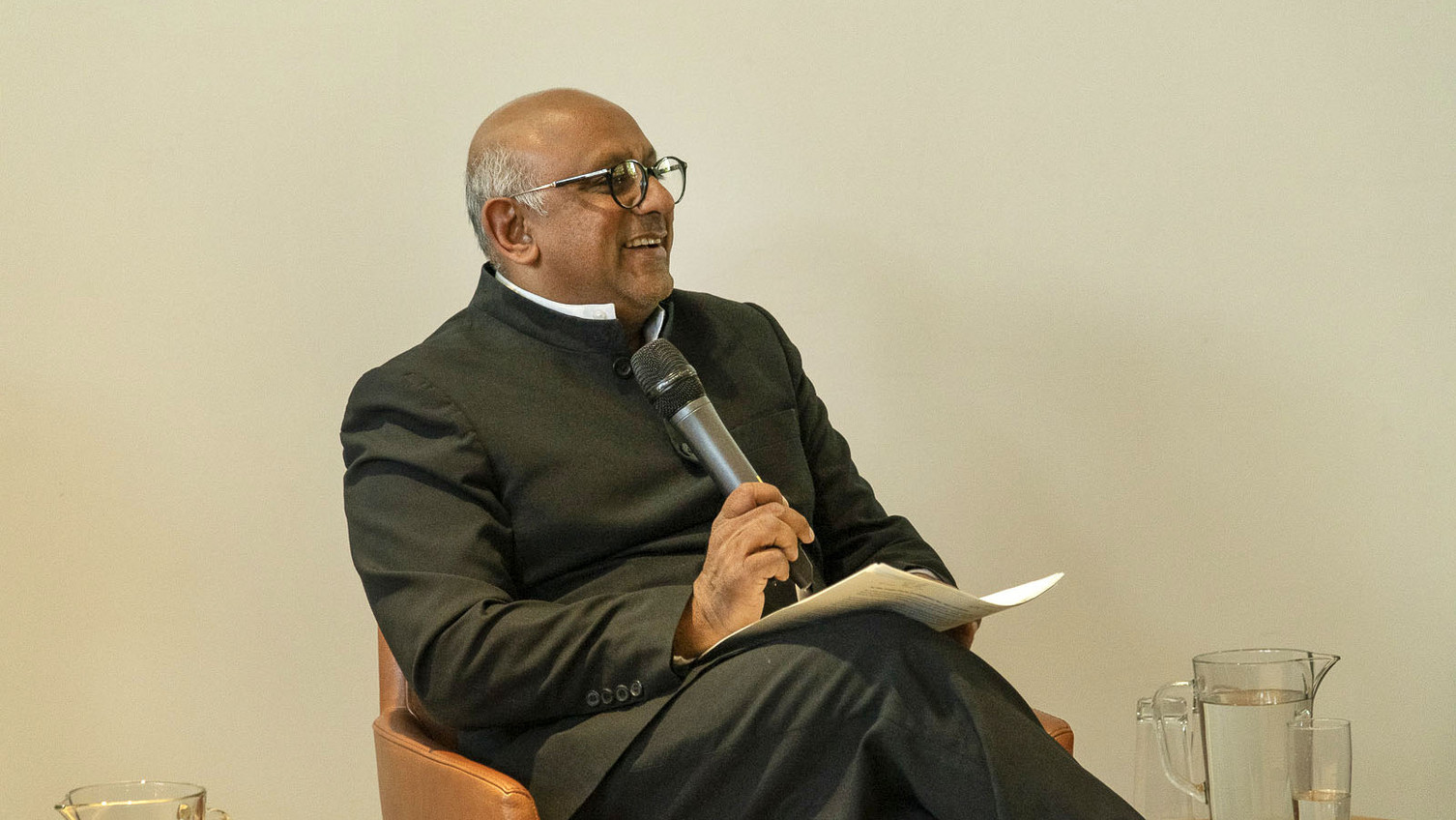LIAS advisory board member Premesh Lalu receives research professorship from the British Academy and the South African National Research Foundation
2025-03-27 LIAS advisory board member Premesh Lalu has been awarded the prestigious position to further research into the relationship between people and technology in the context of a post-apartheid society and to expand the international research network of his Centre for Humanities Research (CHR) at the University of the Western Cape
Lüneburg. Professor Premesh Lalu from the University of the Western Cape's Centre for Humanities Research (CHR) in Cape Town has been awarded the ‘British Academy/NRF National Research Foundation UK-SA Bilateral Digital Humanities Chair in Cultures of Technology’. This is a joint initiative between the UK and South Africa to promote research in this field.
Professor Premesh Lalu is one of the founding members of the scientific advisory board of the Leuphana Institute for Advanced Studies (LIAS) in Culture and Society, which was founded in 2022. He is also closely associated with the institute through the research collaboration with the Centre for Humanities Research (CHR) at the University of the Western Cape in Cape Town, in which the future of the university is being researched.
The award of the research professorship is linked to the establishment of an international study network. It will work on the joint development of humans and technology in the context of the history of apartheid in South Africa. Premesh Lalu had already addressed this in his highly acclaimed book Undoing Apartheid (Cambridge, Polity, 2022), which, among other things, deals with the devastating influence of apartheid ideologue, politician and psychologist Hendrik Verwoerd (1901-1966), who was Prime Minister of South Africa between 1958 and his assassination in 1966. According to his premise, technology is used to control and influence society.
‘We seem to be developing an unhealthy, addictive relationship with technology today,’ Lalu explains his research approaches. ’The problems commonly associated with the so-called Paypal mafia and anarcho-capitalists in the world have strong institutional links to apartheid in South Africa. I, on the other hand, see the development of the relationship between people and technology with the aim of a life worth living as an educational issue. We need to educate the senses of how to live best with technology, something sorely lacking in the contemporary university in Africa,’ says Premesh Lalu. The University of the Western Cape's Centre for Humanities Research (CHR) is characterised by a unique approach to aesthetic education and the visual, film and sound arts.
The new chair will invite graduates, teachers and artists in residence from the Centre for Humanities Research (CHR) and the University of the Western Cape (UWC) to explore the cultural impact of scientific revolutions in thermodynamics, psychotechnology/psychophysics and cybernetics and their consequences for debates on techno-feudalism, division and difference, ecology and the environment, biopolitics, philosophy of life, magical realism and science fiction.
About Premesh Lalu
Premesh Lalu is a research professor and founding director of the Centre for Humanities Research (CHR) at the University of the Western Cape. Under his leadership, the CHR was awarded the ‘Department of Science and Innovation-National Research Foundation Flagship on Critical Thought in African Humanities’. Lalu is an advisory board member of the Käte Hamburger Kolleg in Munich and a juror at the Akademie Schloss Solitude in Stuttgart. He is a former chair of the Handspring Trust for Puppetry in Education and served as a board member of the Consortium of Humanities Centres and Institutes from 2014 to 2022.
His book publications include Undoing Apartheid (2022); Love and Revolution in the Twentieth-Century Colonial and Postcolonial World (co-ed.) (2021); Remains of the Social: Desiring the Post-apartheid (co-ed.) (2017); Becoming UWC: Reflections, Pathways, and Unmaking Apartheid's Legacies (co-ed.); The Deaths of Hintsa: Post-Apartheid South Africa and the Shape of Recurring Pasts (2009). His first book, The Deaths of Hintsa: Post-apartheid South Africa and the Shape of Recurring Pasts (2009), was shortlisted for the Alan Paton Prize in 2010.

